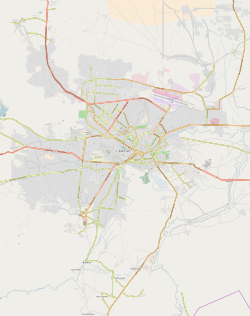Background
Following the September 11 attacks, the United States requested that the Taliban hand over Osama bin Laden, the leader of the terrorist group Al-Qaeda. [4] After the Taliban refused, the US and other nations invaded Afghanistan. [5] [6] The Taliban still has control over 59 districts. [7]
Over the years, the US has negotiated with the Taliban to end the war, with a likely solution that involves the withdrawal of US troops before the 2020 US presidential election being proposed in July and August 2019. [8] Despite these ongoing peace negotiations, the Taliban has targeted civilians that would participate in the 2019 Afghan presidential election [9] in various attacks carried out in the first half of 2019. The group has threatened to disrupt the elections on August 6, calling the elections "worthless" because they have no legitimacy. [10]
This is not the first time in which a police station was targeted. In April 2019, a large attack was carried out by the Taliban in western Afghanistan in which 30 soldiers and police officers were killed. [11] A similar event occurred on July 27, 2019, when a suicide bomb near a police headquarters in Ghazni Province killed three police officers and wounded 12. [12] The United Nations Assistance Mission in Afghanistan has stated that the month of July 2019 was the deadliest in Afghanistan since May 2017 due to a rise in civilian casualties. [13]
The military training school that was targeted also served as a recruitment center for security forces. [3]
Attack
The bomb was detonated around 9:00 am AFT on August 7, 2019, when a vehicle targeted the gates of District 6 police headquarters. [14] The vehicle was stopped at a security checkpoint outside the building. The police headquarters was located in Golaee Dawa Khana, a Shi’ite neighborhood. [15] The police headquarters and a military training school were the main targets. The explosion left thick smoke in the sky and formed a large crater. The police station, a nearby military training school, and all windows in a radius of a mile were destroyed. [16]
The explosion left 14 people dead, including four police officers, and 145 wounded, mostly women and children; 92 of the wounded were civilians. [17] Two of the attackers were killed, however one was arrested. The bomb used has been identified as a car bomb, with the Taliban claiming that a larger truck bomb was used instead. [18] The attack occurred days before the Islamic holiday of Eid Al Adha. [19]
This page is based on this
Wikipedia article Text is available under the
CC BY-SA 4.0 license; additional terms may apply.
Images, videos and audio are available under their respective licenses.

